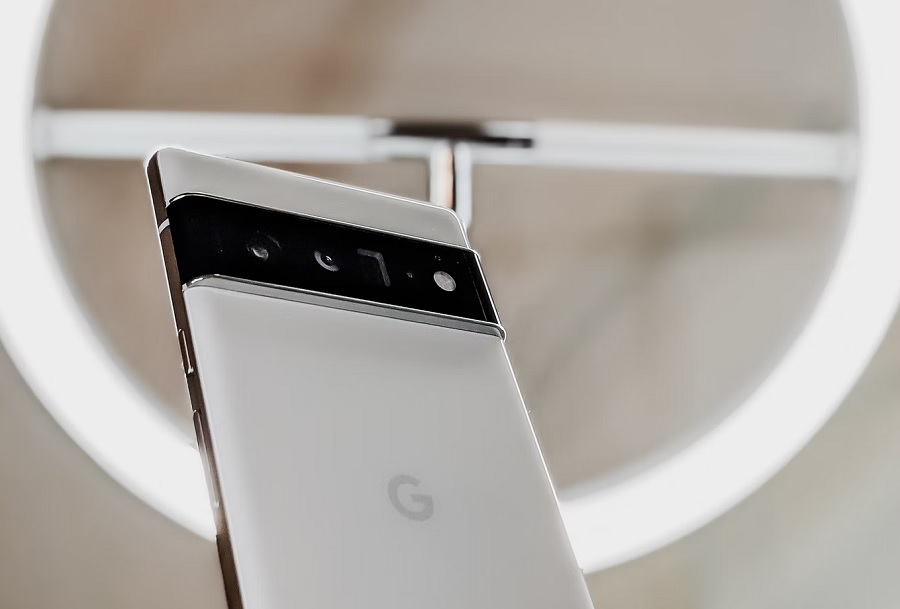A new report claims Google’s first foldable Pixel phone is back in the rumor mill after being internally canceled late last year. However, the device is not expected to launch anytime soon.
Google is once again rumored to be planning to produce the foldable Pixel phone in the coming months. Ross Young, display analyst and CEO of Display Supply Chain Consultants (DSCC), reported earlier this week that the panel production for the device could start in the third quarter of 2022.
In the same post, Young noted that the foldable Pixel phone could be released in the last quarter of the year. When asked if the device’s launch is possibly closer to the release of the Samsung Galaxy Z Fold 4, the display analyst said, “Yes, probably October.” Note that the second and third iterations of Galaxy Z Fold were released in August in the last two years.
Google has been unveiling its new flagship Pixel phones in the fall every year since 2016. Following Young’s latest reports, it now appears that the company’s event in the next fall will have a bigger lineup if the company follows through with its rumored plan for a foldable phone.
While Google did not announce or gave any indications about the launch of the foldable Pixel phone, the device has been mentioned in several reports. Noted leakers also cited sources that confirmed with them the foldable device was on track to launch in 2021. Speculations about the foldable device took off even more after Google announced the Android 12L operating system for tablets and other devices with larger screens.
However, the DSCC said last November that Google “decided not to bring the Pixel Fold to market.” DSCC, per its sources, reported that Google resolved not to release the foldable Pixel phone last year because it may not be able to compete with existing foldable devices at the time. “They likely figured that competing against Samsung in the US and Europe in a small niche market facing higher costs and fewer features than their primary competitor, would stack the odds against this project,” Young said in the report.
Photo by Triyansh Gill on Unsplash



 OpenAI Faces Scrutiny After Banning ChatGPT Account of Tumbler Ridge Shooting Suspect
OpenAI Faces Scrutiny After Banning ChatGPT Account of Tumbler Ridge Shooting Suspect  Nvidia Earnings Beat Expectations as AI Demand Surges, Stock Rises on Strong Revenue Outlook
Nvidia Earnings Beat Expectations as AI Demand Surges, Stock Rises on Strong Revenue Outlook  U.S. Deploys Tomahawks, B-2 Bombers, F-35 Jets and AI Tools in Operation Epic Fury Against Iran
U.S. Deploys Tomahawks, B-2 Bombers, F-35 Jets and AI Tools in Operation Epic Fury Against Iran  Synopsys Q2 Revenue Forecast Misses Expectations Amid China Export Curbs and AI Shift
Synopsys Q2 Revenue Forecast Misses Expectations Amid China Export Curbs and AI Shift  Amazon’s $50B OpenAI Investment Tied to AGI Milestone and IPO Plans
Amazon’s $50B OpenAI Investment Tied to AGI Milestone and IPO Plans  OpenAI and U.S. Defense Department Update Agreement to Clarify AI Usage Terms
OpenAI and U.S. Defense Department Update Agreement to Clarify AI Usage Terms  Australia Targets AI Platforms With Strict Age Verification Rules
Australia Targets AI Platforms With Strict Age Verification Rules  The Pentagon strongarmed AI firms before Iran strikes – in dark news for the future of ‘ethical AI’
The Pentagon strongarmed AI firms before Iran strikes – in dark news for the future of ‘ethical AI’  OpenAI Secures $110 Billion Funding Round at $840 Billion Valuation Ahead of IPO
OpenAI Secures $110 Billion Funding Round at $840 Billion Valuation Ahead of IPO  AWS Data Center in UAE Hit by Fire After Objects Strike Facility Amid Regional Tensions
AWS Data Center in UAE Hit by Fire After Objects Strike Facility Amid Regional Tensions  Samsung and SK Hynix Shares Hit Record Highs as Nvidia Earnings Boost AI Chip Demand
Samsung and SK Hynix Shares Hit Record Highs as Nvidia Earnings Boost AI Chip Demand  Snowflake Forecasts Strong Fiscal 2027 Revenue Growth as Enterprise AI Demand Surges
Snowflake Forecasts Strong Fiscal 2027 Revenue Growth as Enterprise AI Demand Surges  Coupang Reports Q4 Loss After Data Breach, Revenue Misses Estimates
Coupang Reports Q4 Loss After Data Breach, Revenue Misses Estimates  Trump Orders Federal Agencies to Halt Use of Anthropic AI Technology
Trump Orders Federal Agencies to Halt Use of Anthropic AI Technology  Anthropic Resists Pentagon Pressure Over Military AI Restrictions
Anthropic Resists Pentagon Pressure Over Military AI Restrictions  Meta Encryption Plan Sparks Child Safety Concerns Amid New Mexico Lawsuit
Meta Encryption Plan Sparks Child Safety Concerns Amid New Mexico Lawsuit 































